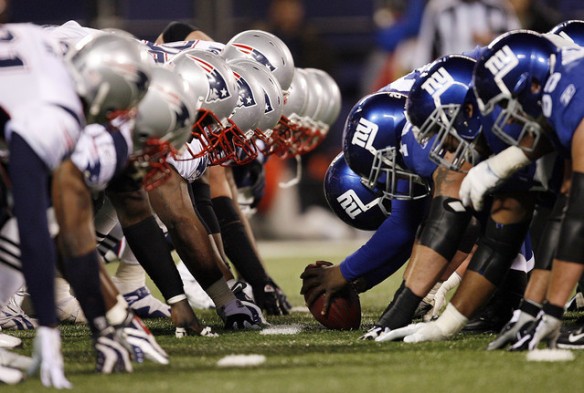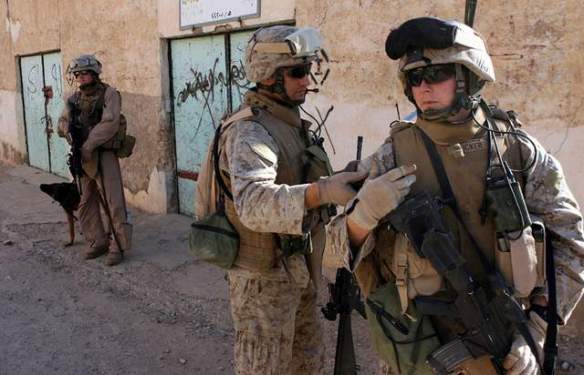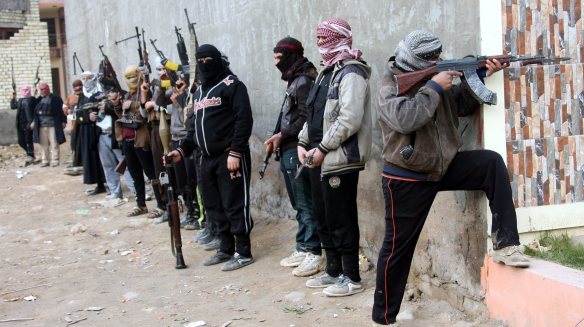People know I like fútbol. They also know I periodically mock conservatives. So it’s only natural, I suppose, that yesterday and today I’ve been bombarded with emails and IMs suggesting I write something about Ann Coulter’s column on hating soccer.
But c’mon…who the fuck is Ann Coulter? Really, who is she that anybody should give a rat’s ass about what she has to say about anything? Does she make policy? No. Does she have any influence (outside the perpetual rage machine)? No. Does anybody who actually has influence or makes policy listen to her? No. So who cares what that sad, pathetic, hateful woman has to say? Not me.
BUT, there’s something worth noting about her idiotic anti-fútbol rant. A lot of people (and I mean people less sad, less pathetic, less hateful — people who actually have influence and make policy) share Coulter’s dislike and distrust of fútbol. That attitude is one of the reasons the United States has been rubbish in our recent military conflicts. Yeah, it doesn’t help that we’ve been fighting the wrong wars for the wrong reasons against the wrong people in the wrong places — but that’s a policy matter. I’m just talking about how the sports we play influence the way we approach armed conflict.
Here’s my point: the U.S. is a football nation; the places where we’ve been engaged in combat are fútbol nations. We’re talking two different sports with radically different philosophies. Those philosophies can be seen as metaphors for the ways we wage war. American football is a great metaphor for waging large-scale land and sea wars. The U.S. totally kicked ass in World War II. But for your more modern asymmetrical conflicts, fútbol is the ticket.
Here’s why. Football is centralized and authoritarian. Command and authority is channeled through coaches and advisers who aren’t even on the field. The information is relayed to a single individual who reveals those orders to the players. In other words, you’ve got old guys who don’t have any skin in the game making most of the decisions. This is thought to be a good thing, because their decisions can be made in a cold, dispassionate, logical way. Most of the individual players on the field don’t need to know what’s going on overall; they just need to follow instructions and do their fucking job. On the other hand, it means if communications fail, or if the defense takes out the quarterback, the team on the field is thoroughly fucked.
Fútbol, on the other hand, is decentralized and democratic. For the most part, once the match begins the coaches are relegated to standing on the sidelines, screaming. Almost all the decisions are made in real-time by the players on the field. Every member of the team is expected to know what’s going on. If one player is removed — even if he’s the best player — the rest of the team can carry on.
Football is played by specialists. Individual players have narrowly defined functions, from which they don’t/can’t stray. Only certain players are allowed to move the ball (except in very specific circumstances). The quarterback can’t throw a pass or hand off the ball to the offensive tackle. Why? Because he’s the goddam offensive tackle; his job is to bang into people, not to move the ball. Make sense of that, if you can.
Fútbol is played by generalists. The only truly specialized position is that of goalkeeper. All the other players play both offense and defense, and are prepared to shift from one to the other without notice. Anybody can move the ball and score.
Football is a game of interruptions. Since the decisions are mostly made by people who aren’t actually playing the game, the game comes to a halt every few seconds while new instructions are given to the players. During that halt, substitutions are brought in for specific plays. The players need to memorize their duties for a large number of different plays, but those duties are pretty tightly limited. If the quarterback calls an end run, the offensive tackle has to remember to bang into that specific guy; it the play is a passing play, he needs to bang into that other specific guy. The offensive tackle doesn’t need to know what the wide receivers are going to do, or what the tight end is going to do. Why? Because he’s the goddam offensive tackle, and he just needs to know who to bang into.
Fútbol has few interruptions. Game play, for the most part, is continuous. There are few substitutions. Instructions from off the field are rare. Players are expected to pay attention to what’s going on all over the pitch and improvise as necessary.
Football is a game of explosive violence, so players have to be armored. That armor is tailored to the position the player occupies on the field — a wide receiver wears different gear than an offensive tackle. For a kid to become a good football player, he needs access to all that gear, which ain’t cheap. That means joining an organization (usually a school). An organization means outside control — coaches, sponsors, etc. The organization looks out for the organization, which isn’t always good news for the people playing the game.
Fútbol requires a ball. Maybe some shin guards. Maybe a goal area. Kids can play the game anywhere. You can learn most fútbol skills without joining any organization; all you need is people to play with.
Football is about rigid control of territory. It’s about concentrating power at certain locations on the field. It’s about one guy directly delivering the ball to one other guy, and everybody else in support roles.
Fútbol doesn’t care all that much about territory. Control of the ball is more important. Fútbol is about dispersing power all over the pitch. It’s about loose, flexible coordination of indirect attacks from unexpected directions by several different players.
Football is World War I and World War II. Fútbol is insurgency and guerrilla warfare. This is how the U.S. has been fighting wars. We’re playing football; they’re playing fútbol. We’re great at banging into things really hard; they’re great at dodging and controlling the ball without using their hands. Head-to-head straight-up violence, we’re your daddy. Subtle, improvised, unexpected violence, we’re their bitch.
These aren’t just my thoughts, by the way. Joel Cassman and David Lai published an article in the Armed Forces Journal titled Football vs. Soccer, American Warfare in an era of unconventional threats. You should read the entire article. Sad, pathetic, hateful Ann Coulter should read the article. The fuckwits who keep arguing that we should send U.S. troops into combat should read the article.
Here’s the really sad thing: it was written way back in 2003. And we’re still trying to impose football onto the fútbol pitch.







Pingback: What I’m Reading, July 10, 2014 | Cryptic Philosopher
This is brilliant, actually. And it begs another question: Why are there narrow-minded, influenced-drenched troglodytes squabbling with each other in Congress and not articulate, aware people like you?
Well, I know it’s a Catch-22, you wouldn’t be caught dead in such a neuron-killing job, that’s part of the reason you’re still so aware, but I like to ignore the obvious circular reasoning every once in a while and dream. I like to do it while eating pizza and drinking vodka to soothe my disappointment in my health.
LikeLike